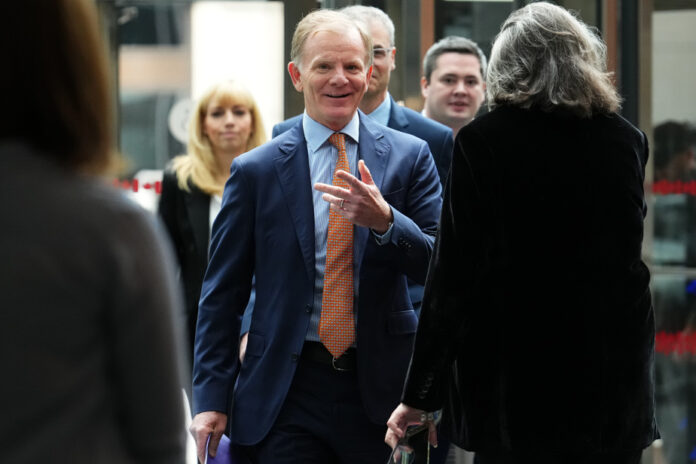(Ottawa) Summoned to Ottawa by the Minister of Industry, François-Philippe Champagne, the bosses of the five major supermarket chains should present within three weeks a plan to curb the rise in the price of the grocery basket. The government, however, maintains its threat to impose tax measures.
“I would say it’s a historic day,” enthused Minister Champagne on Monday.
Because never before have the leaders of the major food chains been summoned by the government, and at the end of the meeting of approximately two hours, “they are formally committed to supporting the Government of Canada in our efforts to stabilize the prices in Canada,” he noted.
Bosses will have to “individually” come up with “very concrete plans” by Thanksgiving, as prescribed by Ottawa. And if their proposals are not to the government’s liking, fiscal intervention is always “on the table”, indicated Minister Champagne.
The one to whom Justin Trudeau entrusted this mission wants to broaden the discussion to international manufacturers. “Unilever, Nestlé, PepsiCo […] also have a role to play in helping Canadians,” he pleaded, affirming that he intended to convene this week “around five to ten” of them.
The minister, who is looking at the interventions made by the United Kingdom and France to subdue the giants of the industry, affirmed that he would be prepared to go so far as to “publicly embarrass those who do not want to be part of the solution “.
The CEOs of the major brands were rather stingy with their comments on Monday. “We have to stabilize prices,” said Sobeys/Empire boss Michael Medline, walking briskly, after the meeting with Minister Champagne and his Finance colleague, Chrystia Freeland.
Metro CEO Éric La Flèche assured that grocers were working “hard every day to reduce prices as much as possible.” But the fact is that “it’s a supply chain, and we are the last link in that chain,” he argued.
“Prices are going up for suppliers, farmers, everyone. Everyone experiences inflation. We are at the end of the chain, and that is why retail prices have increased,” added Mr. La Flèche, emphasizing that the profit margins of large grocers are, did not climb.
The three other executives who had been summoned to Ottawa – Galen Weston of Loblaws, Gonzalo Gebara of Walmart Canada, and Pierre Riel of Costco Canada – slipped out of the building after the meeting . When they arrived, they flew by without saying a word.
Among the opposition parties, skepticism reigns.
“Do I think grocery stores are making too much profit? It’s obvious they’re making more money than they should! This is what happens when governments print money and cause inflation,” said Conservative Leader Pierre Poilievre on the eve of the start of Parliament on Sunday.
He made fun of the summons of the bosses of the supermarket chains. According to him, we are witnessing nothing more than a “public relations operation”, a “political theater” staged by an “actor” who should rather take “actions”, he mocked in referring to Justin Trudeau.
“Asking CEOs like Galen Weston to stop raising prices is like asking Pierre Poilievre to tackle the climate crisis. We all know that this will not happen and that it is just a show,” quipped New Democrat Alistair MacGregor in a press release on Monday.
The Liberals’ summer slump in the polls may have encouraged them to finally make a move after having “pretty much done nothing for a year and a half, two years,” analyzed Bloc leader Alain Therrien. Nonetheless, the government “has a role to play,” he believes.
It is unclear what form this might take. Could we impose a surtax on grocery stores on “excessive profits”, as has already been called for by its dance partner, the New Democratic Party? Nothing has filtered out about liberal intentions until now.
According to Sylvie Cloutier, president of the Food Processing Council of Quebec, the federal government “must have solutions over which they have control,” and “they do not have control over the plans of retailers and distributors.”















